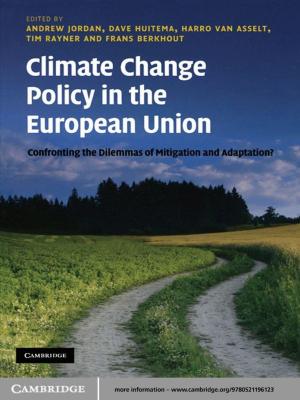Political Self-Sacrifice
Agency, Body and Emotion in International Relations
Nonfiction, Social & Cultural Studies, Political Science, International, International Relations, Social Science| Author: | Professor K. M. Fierke | ISBN: | 9781139610971 |
| Publisher: | Cambridge University Press | Publication: | November 29, 2012 |
| Imprint: | Cambridge University Press | Language: | English |
| Author: | Professor K. M. Fierke |
| ISBN: | 9781139610971 |
| Publisher: | Cambridge University Press |
| Publication: | November 29, 2012 |
| Imprint: | Cambridge University Press |
| Language: | English |
Over the last decade the increasing phenomenon of suicide terrorism has raised questions about how it might be rational for individuals to engage in such acts. This book examines a range of different forms of political self-sacrifice, including hunger strikes, self-burning and non-violent martyrdom, all of which have taken place in resistance to foreign interference. Karin Fierke sets out to study the strategic and emotional dynamics that arise from the image of the suffering body, including political contestation surrounding the identification of the victim as a terrorist or martyr, the meaning of the death as suicide or martyrdom and the extent to which this contributes to the reconstruction of community identity. Political Self-Sacrifice offers a counterpoint to rationalist accounts of international terrorism in terrorist and security studies, and is a novel contribution to the growing literature on the role of emotion and trauma in international politics.
Over the last decade the increasing phenomenon of suicide terrorism has raised questions about how it might be rational for individuals to engage in such acts. This book examines a range of different forms of political self-sacrifice, including hunger strikes, self-burning and non-violent martyrdom, all of which have taken place in resistance to foreign interference. Karin Fierke sets out to study the strategic and emotional dynamics that arise from the image of the suffering body, including political contestation surrounding the identification of the victim as a terrorist or martyr, the meaning of the death as suicide or martyrdom and the extent to which this contributes to the reconstruction of community identity. Political Self-Sacrifice offers a counterpoint to rationalist accounts of international terrorism in terrorist and security studies, and is a novel contribution to the growing literature on the role of emotion and trauma in international politics.















